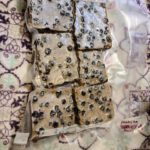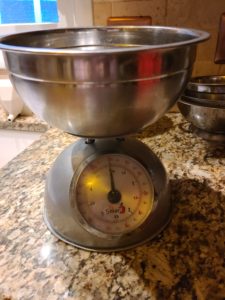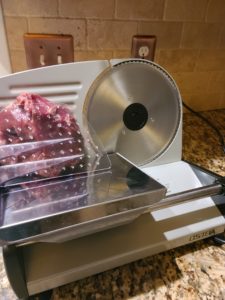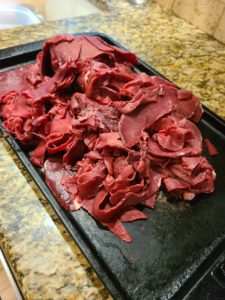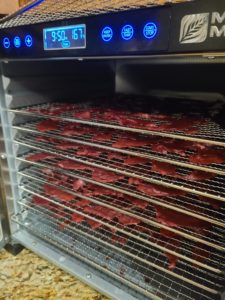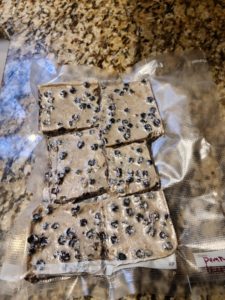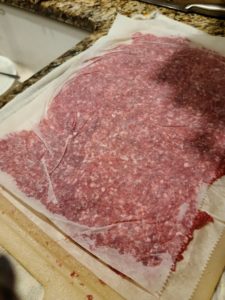Gut health is mental health.
Somebody recently mentioned on a social media site that he had experienced one of those long, dark nights of the soul during which, instead of sleeping, you toss and turn and recall every single stupid or awkward thing you’ve ever said out loud. I’ve had nights like that. Worse than that, I’ve had long, waking days of the same thing. You’re just going about your business and suddenly your mind starts accusing you: I’m the dumbest person ever. How can anybody stand to be around me? I can’t believe I said that!
Not only that, but the anxious mind then takes the opportunity to run a Top 10 (if you’re lucky, it’s only ten) list of your most socially awkward moments ever.
Now, maybe it’s just a function of getting older, but I honestly no longer have any trouble believing that I actually said that, whatever “that” was. You get used to living with your foot in your mouth. You get used to it, but it’s hard to truly learn to let go, isn’t it? I know it’s not just me. Everybody says or does cringe-making things regularly. Not everybody notices it, but most do. So, then, how do they let it go so easily? My gaffes get stuck in my head like a peanut butter and banana sandwich gets stuck to the roof of your mouth!
Surprisingly, for those who suffer from this kind of anxiety, I think it has a lot to do with our guts. No, I don’t mean the socially confident are simply braver than us. I mean that there is a difference in our literal guts, our intestines, that makes the food we eat affect our brains in a unique way. You see, since I started the carnivore diet, I’ve experienced this thing referred to by carnivores who have trod this path before me as the “carnivore calm”. I haven’t had a single 2 a.m. cringing episode since I stopped eating plants!
Almost all plants (and dairy, which I’ll have to address in a separate post) have literally nerve-wracking effects for me. On those days after going carnivore that I just couldn’t resist the asparagus or whatever, I would always notice half a day or so later, I’d get some anxiety again. Not the social kind (that’s really gluten and dairy), but free-floating anxiety. I sometimes get ear worms that seem obnoxiously loud and make me want to jam a crochet hook into my ear to dig them out. I can’t ever just have a nice song that I like in my head. I get to have all of my thoughts drowned out by a 15 second loop of whatever popular atrocity I last heard while flipping through the radio stations. It’s maddening.
Enough days in a row of fiber of any kind, and I become clinically depressed.
(This seems to me a really good place to point out that, in spite of all my anxieties and depression, Jesus has made most of my adult life a productive and meaningful time in spite of all of these hindrances. He’s the real miracle-maker in my life. He gave me the spiritual wherewithal to make it through a lifetime of depression and anxiety and still be a productive and useful person, able to raise a family and work for Him in my own reclusive ways. I give Him all praise and glory for that. And then after all those years of learning to lean on Him, he led me to the physical reason for all these problems that he salved so lovingly for so many years, so that I could move on to the next step in my walk with Him. Give Him praise, people! I never knew what He was doing, but I always knew He knew what He was doing. Eliminating plants and dairy didn’t save me from anything, but it has sure has made me feel better while being saved. OK, back to the OP:)
When I eat zero fiber, I get none of these symptoms. I just hum through my day, clear-headed and happy. I handle stress like a champ. I’m actually having fun!
Carnivore didn’t change who I am. I’m still weird. I’m still introverted. I’m still making mistakes. I still stick my foot in my mouth. I still do stupid things and wonder why I didn’t know any better. But I’m able to forgive myself quickly and move on. My brain no longer stores everything I got wrong today to hate-binge on later when I’m trying to sleep. I’m no longer hindered from enjoying the world by all the negative self-talk that used to try to hold me back.
I’m just so stinking well-adjusted now!
That’s weird, isn’t it? I don’t have all the answers, but I do have a few years of experimentation to share. My depression and anxiety largely went away when I moved to a ketogenic diet, so ketones probably have a little something to do with it. Ketosis does give you a very sharp mental state.
But I also gave up wheat at the same time, and I think that really was the magic bullet for me. Gluten has a deleterious effect on my gut, and thus my brain. I know for a fact, after different experiments adding foods back, that gluten is the trigger for other physical ailments of which I’m now totally free. I probably have undiagnosed celiac disease. I don’t really care to ask a doctor to confirm it.
I have a relative who craved gluten like a drug as a kid, and would only eat foods containing gluten (not hard to pull off in this food environment) and whose mind was very much hampered by the stuff. Gluten exacerbated every stereotypical autistic, and, frighteningly, sociopathic behavior in him. It was my witnessing of this pattern that made me wonder about myself. Gluten is the mind-killer!
Gluten, fine, but how can cauliflower make me feel so bad? To tell the truth, I question this aspect of my condition frequently myself, sometimes to the point where I stop believing it entirely and eat something that’s not meat. And then I invariably find out again. A little bite of something is often no problem, but if I just decide I’m going to start having regular keto food instead of full-blown carnivore, it’s only a matter of a day or two before I start having those same old feelings of anxiety and depression, stress, the little compulsions like over-tidiness, and songs stuck in my head. It has, through some intentional experiments, but mostly mishap, become undeniable to me that it’s the food. Fiber is doing something in my gut–whether feeding the wrong bacteria, making it leaky, or something else I can’t guess–that is throwing off the chemicals in my brain. This could very well be happening to you, too.
Now, I’m sure there are causes of mental illness that don’t originate in the gut. I’m not calling carnivore a magic bullet. But for me it has been almost magical, and it might be worth a shot for you, too. If having a song stuck in a loop in your head doesn’t bother you, and that’s the only symptom you’ve got, maybe you don’t want to experiment with taking plants out of your diet. I miss the plants, to tell the truth. I’d eat them all day long if I could. I simply can’t.
I am not the only person who experiences this. There are maybe hundreds, maybe thousands of carnivores who have discovered this exact pattern in themselves. I didn’t make this up. They didn’t make this up. If you want to hear more, I recommend starting with YouTube videos from Amber O’Hearn or Georgia Ede, then let the rabbit hole suck you in from there. There’s a lot of solid evidence that the Western diet is mentally torturing a number of us.
Now, I have to go lift some weights and then we have a gingerbread house decorating party to host (no eating the houses!), so I’m going to throw this out there mostly unedited. Please forgive any typos, run-on sentences, and irrelevant asides.
Want to discuss this? Meet me on Gab, MeWe, or Social Galactic.

